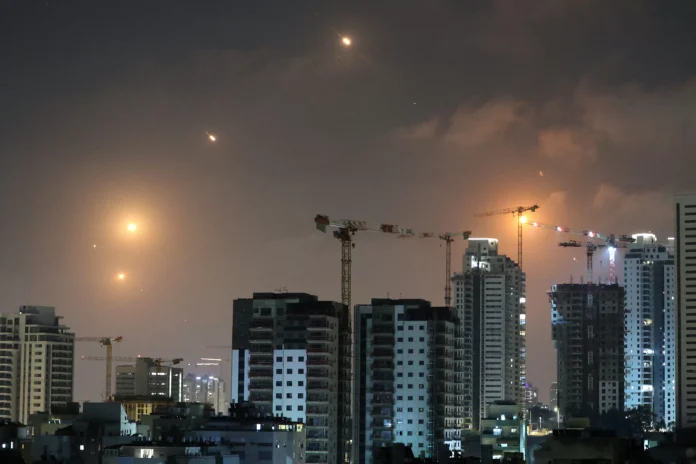Israel’s recent strike on key Iranian nuclear sites has once again brought the long-standing tensions between the two countries to the forefront. Amidst rapid uranium enrichment and increasing concerns over Iran’s nuclear program, Israel took decisive action to curb the development of a potential nuclear bomb.
The strike, which was carried out in the early hours of the morning, targeted several sites in Iran believed to be involved in the production of nuclear weapons. According to Israeli officials, the operation was a necessary step to prevent Iran from acquiring the capability to develop a nuclear bomb, which poses a grave threat not only to Israel but to the entire region.
The decision to launch the strike was not taken lightly, and Israel had been closely monitoring Iran’s nuclear activities for some time. The recent rapid enrichment of uranium by Iran was a clear indication of their intent to develop nuclear weapons, and Israel could not afford to wait and risk the safety and security of its citizens.
The strike has been met with mixed reactions from the international community, with some countries condemning it as an act of aggression and others supporting Israel’s right to defend itself. But for Israel, the strike was a necessary measure to safeguard its existence in the face of a potential nuclear threat from Iran.
Iran has repeatedly denied any intention to develop nuclear weapons, claiming that its nuclear program is for peaceful purposes. However, their actions tell a different story. The rapid uranium enrichment, in violation of the 2015 nuclear deal, and the refusal to allow international inspectors access to certain sites have raised serious concerns about their true intentions.
Israel’s strike was not only aimed at curbing Iran’s nuclear program but also served as a warning to the regime to take its responsibilities seriously. Iran’s continued pursuit of nuclear weapons not only poses a threat to Israel but also destabilizes the entire region and goes against the efforts of the international community to promote peace and stability.
In the past, Israel has always maintained a policy of preventing its enemies from acquiring weapons that could pose a threat to its security. This is not the first time Israel has taken action against Iran’s nuclear program. In 1981, Israel carried out a similar strike on Iraq’s nuclear reactor, and in 2007, it targeted a nuclear facility in Syria. Both operations were successful in preventing these countries from developing nuclear weapons.
The strike has also highlighted the close alliance between Israel and the United States. The US has publicly supported Israel’s right to defend itself and has condemned Iran’s provocative actions. This close relationship between the two countries is crucial in the face of growing threats from Iran and other hostile regimes in the region.
Israel’s strike on Iran’s nuclear sites has sent a strong message to the regime that its aggressive and dangerous behavior will not be tolerated. It also serves as a reminder to the international community that Iran’s nuclear ambitions must be taken seriously.
Israel has always been at the forefront of the fight against terrorism and has been a strong advocate for peace and stability in the region. The strike on Iran’s nuclear sites is a reflection of its commitment to protecting its citizens and the region from any potential threats.
In the aftermath of the strike, tensions between Israel and Iran are expected to rise. However, Israel remains committed to using all necessary means to prevent Iran from acquiring nuclear weapons. The strike may have been a bold move, but it was a necessary one to ensure the safety and security of the Israeli people.
In conclusion, Israel’s strike on key Iranian nuclear sites was a necessary and justified action to curb the development of a potential nuclear bomb. It serves as a warning to Iran to abandon its dangerous nuclear ambitions and comply with international regulations. Israel remains committed to promoting peace and stability in the region and will continue to take necessary measures to protect its citizens from any threats.

